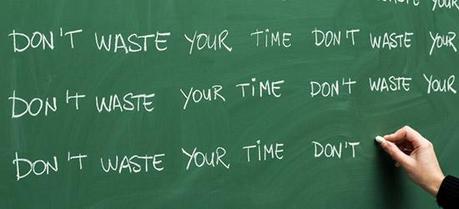
Asking job applicants to prepare a written response to selection criteria doesn’t necessarily help you hire the best candidate for the job – in fact it may actively work against you in achieving this goal.
Other than observing work performance on the job (which is very complex) and psychometric testing, just about every approach to selecting candidates is inherently flawed. A carefully designed and thoughtful process can improve the predictability of successful performance on the job but asking all candidates to prepare a detailed written response to selection criteria is not particularly effective.
Perhaps due to conditions attached to government–provided funding, many organisations in the not-for-profit sector seem to have adopted this time-consuming process, increasing the burden on already stretched resources and reducing the likelihood of successfully attracting and choosing capable people for their organisations. I am not advocating against selection criteria as such but there are better, and simpler, ways of assessing candidates suitability.
Here are six reasons to avoid written responses to selection criteria:
1. You don’t know who actually wrote the response
There is a whole industry out there of consultants and authors providing advice to people applying for government jobs. Some of them even boast of being able to refer a job seeker to the ‘best selection criteria writers’ as voted by government recruitment panels. While this may lead to a polished, competitive, easy to read application, it doesn’t guarantee that the candidate will measure up at the interview stage or on the job.
2. It takes a lot of time for candidates to prepare
Writing a response to selection criteria is painful, difficult and confusing, especially for newcomers to the process. As a prospective employer, you are asking candidates to invest a lot of time and effort in applying to your position before they even know if there is any possibility that they will be a serious contender. If treating employees with respect is important, then surely this courtesy should be extended to candidates prior to their appointment as well – this includes respecting their time.
3. You are probably not hearing from the best candidates for the job
They are too busy being good at their current position to invest the time in applying, or they are not actively seeking a new position. Either way, the threshold of effort required to even ‘throw their hat in the ring’ is too high.
4. It takes a lot of time for the panel to read and assess the applications
If it takes a long time to prepare these applications, it takes almost as long to read and fairly assess each one. After a while they all sound the same so it becomes even more difficult to differentiate between them and, essentially, you will be selecting for the best writer of applications, not the person with the most appropriate skills for the position. The time invested by panel members in reading a large volume of applications could be much better utilised later in the selection process, when the field of candidates has been narrowed and you want to investigate each one in detail.
5. It extends the duration of the recruitment process
To ensure fairness, you need to allow enough time for candidates to prepare applications and, for the panel, sufficient time to assess their submissions. By the time you contact them to offer an interview, many candidates will have already accepted a position elsewhere, forgotten what the job was or assumed they were unsuccessful (and you were rude in not replying). Meanwhile, existing staff are trying to cover the vacant position, potentially increasing stress, reducing service to stakeholders and customers and ultimately impacting on organisational performance and staff retention.
6. It will not help your reputation as an employer
If your organisation becomes known for its onerous recruitment processes and long lag times you are unlikely to attract the best people or be regarded as an ‘employer of choice’.
If this method of recruitment is so flawed then why do so many large organisations and government agencies still require it? It seems that this is largely aimed at ensuring perceptions of fairness, transparency and equity and in providing evidence to defend against accusations of bias. However, these goals can be better met using other more effective and efficient approaches, such as screening applicants using psychometric tests supplemented with second round testing and properly constructed structured interviews.
In summary, adopting more effective selection methods rather than time consuming and flawed screening methods, such as selection criteria, will help you to achieve your primary goal - appointing someone who is well suited to and capable of delivering excellent performance in the role!

